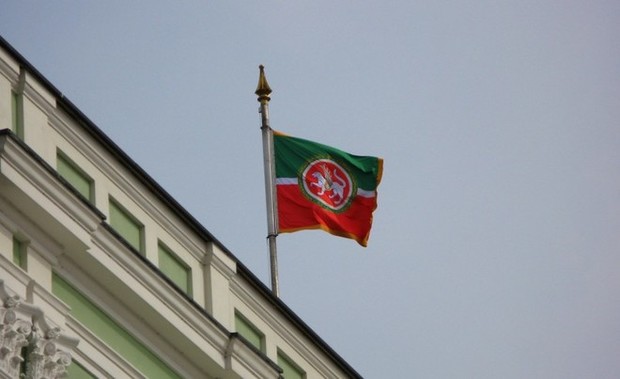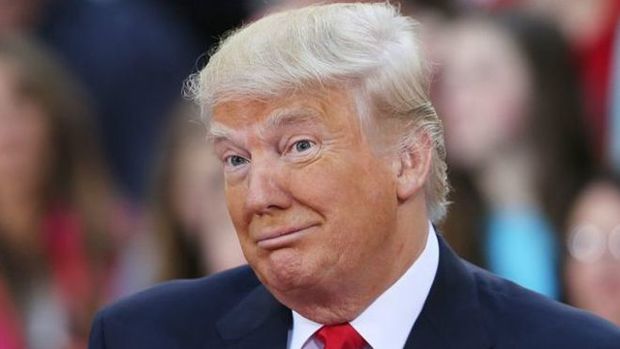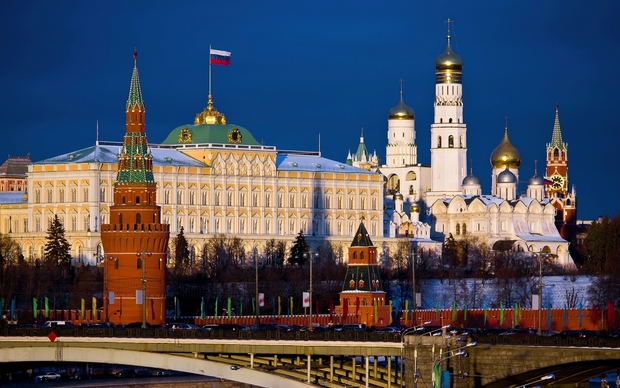''Russia ceased to be a federation when direct gubernatorial elections were abolished''
A political scientist from St. Petersburg tells about the background of the contractual relations between Kazan and Moscow and why Russian federalism is more dead than alive
In due course, the political intrigue of the year in Tatarstan connected with the signing of the treaty between Tatarstan and the federal center was not resolved (or, on the contrary, against the backdrop of the recent statement of Sergey Kirienko it has been resolved — as you like). A political analyst Viktoria Poltoratskaya in the interview with Realnoe Vremya explained why it is early to draw the line in this issue, what will change in the case of non-renewal of the document and how the formal institutions are better than informal ones in times of crisis.
''Without the treaty, everything will be the same for a while''
What do you think about that now the non-renewal of the contract leads to a legal conflict — the treaty is found in the Constitution of Tatarstan, and the latter provides that amendments thereto are adopted by the parliament or by referendum? Is it possible to start talking about referenda given the recent verdict to a journalist of RBK Alexander Sokolov?
It is difficult for me to say something about a legal conflict since I'm not a lawyer. As for a referendum… Now the opposition forces are trying to defend their interests with at least some legal and institutional mechanisms, which still formally exist in the country. Including through referenda. Recently in Novaya Gazeta it has been published an interesting interview with former Altai deputy Sergey Mikhaylov, who tells about how during the last half and a year he has been trying to hold a regional referendum with the question ''Do you support the direct national election of the head of your city (district)?'' And here he appeals to the article 3 of the Constitution of Russia, and at the level of commissions he is being put a spoke in the wheel in different ways.
That is, legal mechanisms and formal institutions appear as something from which the federal center would like to get rid of. And the example of the Tatarstan treaty is about it. This particular formal institution, which, apparently, the federal centre does not like because it can be used in the interests of the region.
Can the situation be interpreted as a bargain? Well, you don't sign a contract, but then leave something else, maybe even more symbolic, the same name of ''president'' for the head of the region?
I think that if the treaty is not signed, it is possible that nothing will change — and, in particular, in Tatarstan, there will remain the name ''president'', and the requirement to the ''president'' – he must speak the Tatar language.

I think that if the treaty is not signed, it is possible that nothing will change — and, in particular, in Tatarstan there will remain the name ''president'', and the requirement to the ''president'' – he must speak the Tatar language
How often have you faced with dissatisfaction of the regions with special conditions granted to Tatarstan?
This dissatisfaction exists, and it is, apparently, rooted in the 1990s. As we all dissatisfaction with the special status of the North Caucasus, although it is, of course, a different story. But Tatarstan, unlike Chechnya for example, can ''fight back'' using pretty strong economic arguments. It is impossible to criticise Tatarstan as a subsidised region, it is a region-donor, and it believes that it also gives the right for some privileges.
Another point is that such a dubious attitude to Tatarstan from other regions today does not have any fundamental significance. There is even greater dissatisfaction with Chechnya — so what? It does not change anything.
In what direction the status quo will fluctuate at the moment of crisis is unclear
Once you said: ''Withdrawing from the contract with a region with strong economic and ethnic resources means formally playing with it according to the rules ''for all'', under which it does not fit, and all the individual characteristics are taken into account in manual mode. This approach has its costs and they manifest themselves in the moment when the situation ''gets out of control.'' What situations''out of control'' do you mean?
The logic is clear why the federal centre is trying to transfer all relations with the regions in an informal way. Because in this situation the regions start to do all sorts of self-censorship and show the utmost loyalty to the federal centre. But the problem is that formal institutions are a very important thing, and they are necessary not only in stable times but especially in times of crises. The problems of the 1990s were largely generated by the fact that there were no institutions. Some institutions collapsed, it was necessary to create others, to build a new political and economic landscape of Russia. The country, in fact, was created anew, and at that time there was a complete anarchy.
The current status quo is supported by a number of characteristics such as resourcing of the federal centre, the presence of the specific person of the president, informal ties with regional leaders and so on. But at some point, the federal centre, for example, may run out of money or something else. In such situation, it will not very clear by what rules the regions will play. This status quo is actually very situational, and in what direction it will fluctuate at the moment of crisis is unclear.
That's why the formal institutions are necessary. Why Americans are not afraid of Trump, why a wild political crisis does not cease the country under him? Because the existing U.S. institutional system, the clear set of rules by which everyone plays will digest any Trump. When formal institutions are abolished, and a conventional Trump comes to power — then the country falls into anarchy.

Why Americans are not afraid of Trump, why a wild political crisis does not cease the country under him? Because the existing U.S. institutional system, the clear set of rules by which everyone plays will digest any Trump
Russia is not a federation from the political point of view
Are you familiar with the experience of building federalism in other countries? Is the current Russian model of federalism unique?
I study all existing federations in the world, except Russia, and it is due to the fact that our country can hardly be called a federation. Here is a classic criterion: Russia has ceased to be a federation at the moment when direct gubernatorial elections were abolished. Federalism suggests that in the political arena there are many players out of some clear hierarchy. In the sense that the federal centre does not determine who will govern people in a particular area, it's up to people themselves. Accordingly, the importance of these politicians increases dramatically, they are important players with whom the federal centre has to respect. In today's Russia such thing doesn't exist, it is a decentralized unitary state. From the political point of view, it is not a federation.
Probably, not absolutely ''decentralised'', only to a certain extent?
Yes, certainly. In general, powers in federations are of three types: political, fiscal and administrative. A number of budgetary and administrative authorities we have below, and, therefore, Russia cannot be called a purely unitary state.
Another thing that this budget and administrative decentralisation in Russia is also specific. Since the beginning of the 2000s the budgetary authority has been actively centralized, and administrative ones, on the contrary, went down. Due to this, it was created the interesting system where the region is very dependent on the federal centre, especially from the budgetary point of view. That is, there is a huge amount of purely administrative things with which the regions have to comply, and the money for this is very often given by the federal centre. Roughly speaking, the better you comply with those administrative things (a variant — the better you negotiate with the Kremlin), the more money you get.
Russia cannot be absolutely unitary even with the best will. It is a huge heterogeneous country, which is impossible to manage from a single point. We have to create management centres across the area, it cannot be helped.
What world experience of relationships between the subjects do you consider suitable for Russia?
Many people who study federalism in Russia have tried to answer this question. To begin with, it should be a federation. Because the federations are all countries of its size and of such extent of heterogeneity in the world. Another question is whether it should be symmetric like, for example, Germany, or asymmetric like Canada. It is a difficult question, each of these examples has its pros and cons, and it is possible to debate here for a long time. Of course, the asymmetry appears where there are some ethnic, linguistic, religious groups with which a special dialogue is needed. Russia has such groups. On the other hand, the danger of an asymmetric federation is that these groups at some point begin to demand greater autonomy and, accordingly, there is a threat of separatism.

Russia cannot be absolutely unitary even with the best will. It is a huge heterogeneous country, which is impossible to manage from a single point. We have to create management centres across the area, it cannot be helped
Do you support the view that what is happening with Tatarstan in 2017 is connected with the need of consolidation of control in the context of foreign policy pressure on Russia?
I tend to see internal reasons. Of course, they are connected with external ones, but at the forefront, I would put the economic crisis. In crisis situations, there is a need to consolidate resources. We remember how in December last year, the president of Tatarstan complained of inequitable distribution of budget money in the country. Such conversations are not started when everything is ok from the economic point of view.
On the other hand, the pressure on Tatarstan can be connected with the upcoming presidential election. Plus, there is the element of chance — the term of the treaty expired precisely this year; it was signed in 2007 for 10 years, nothing can be done. Then, apparently, there was a different political situation. Now it is changing.